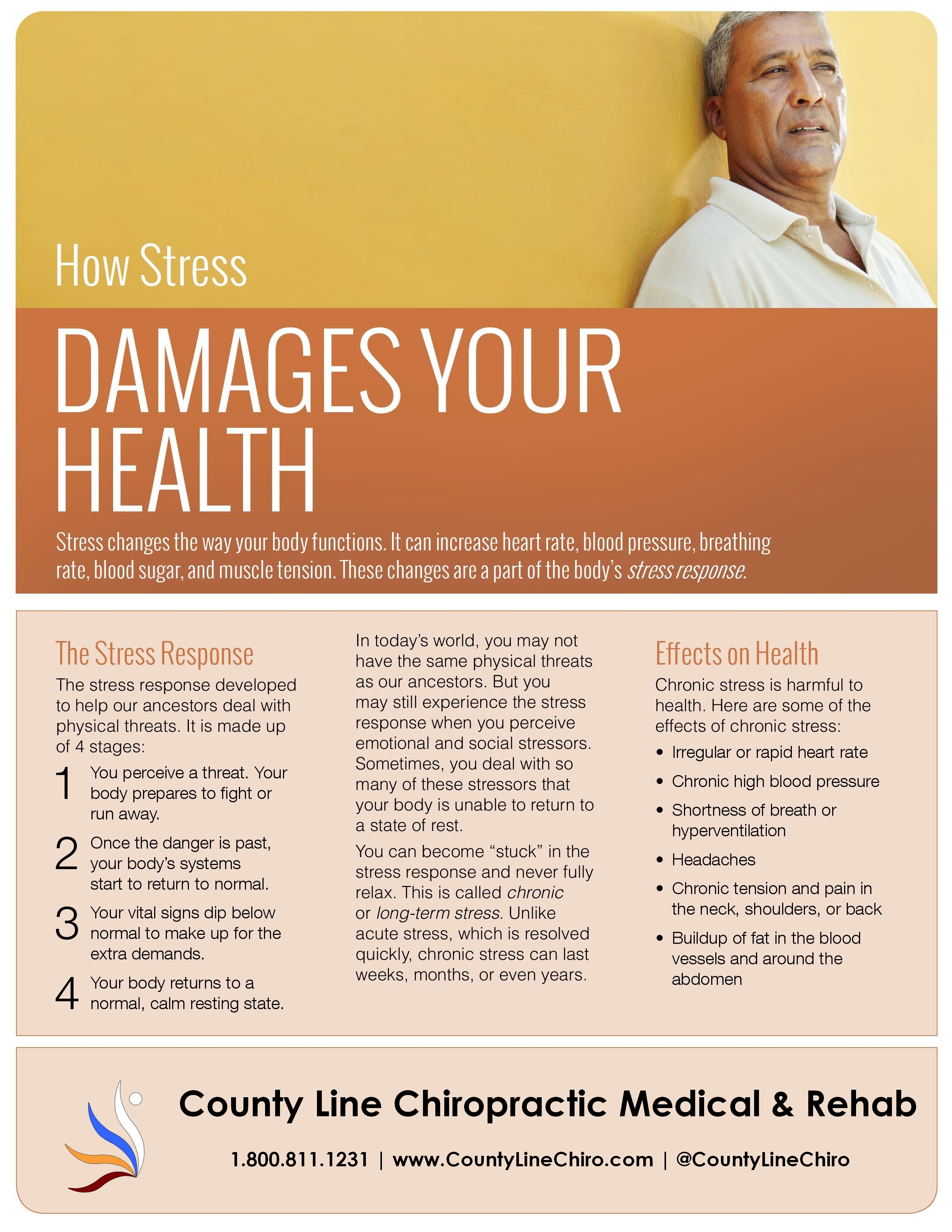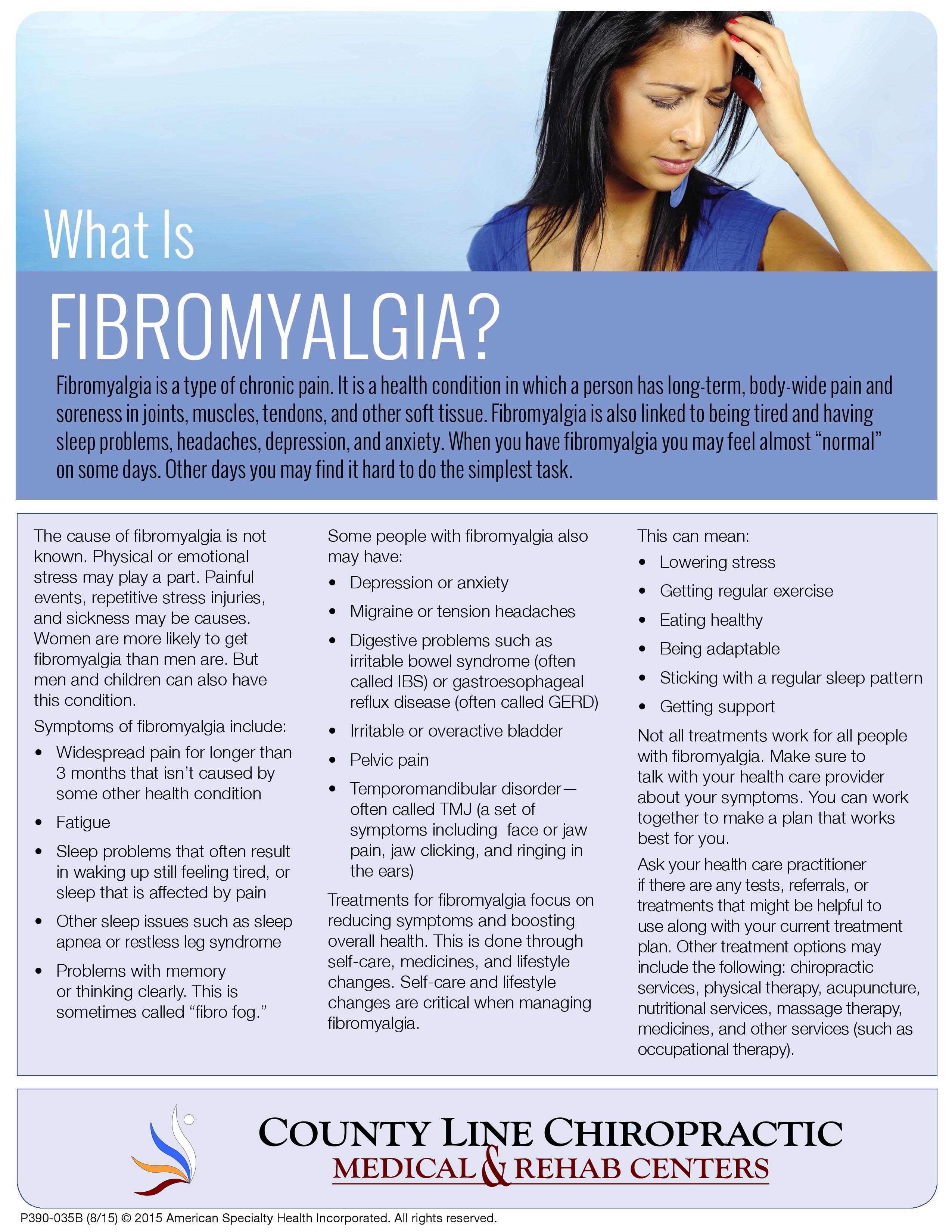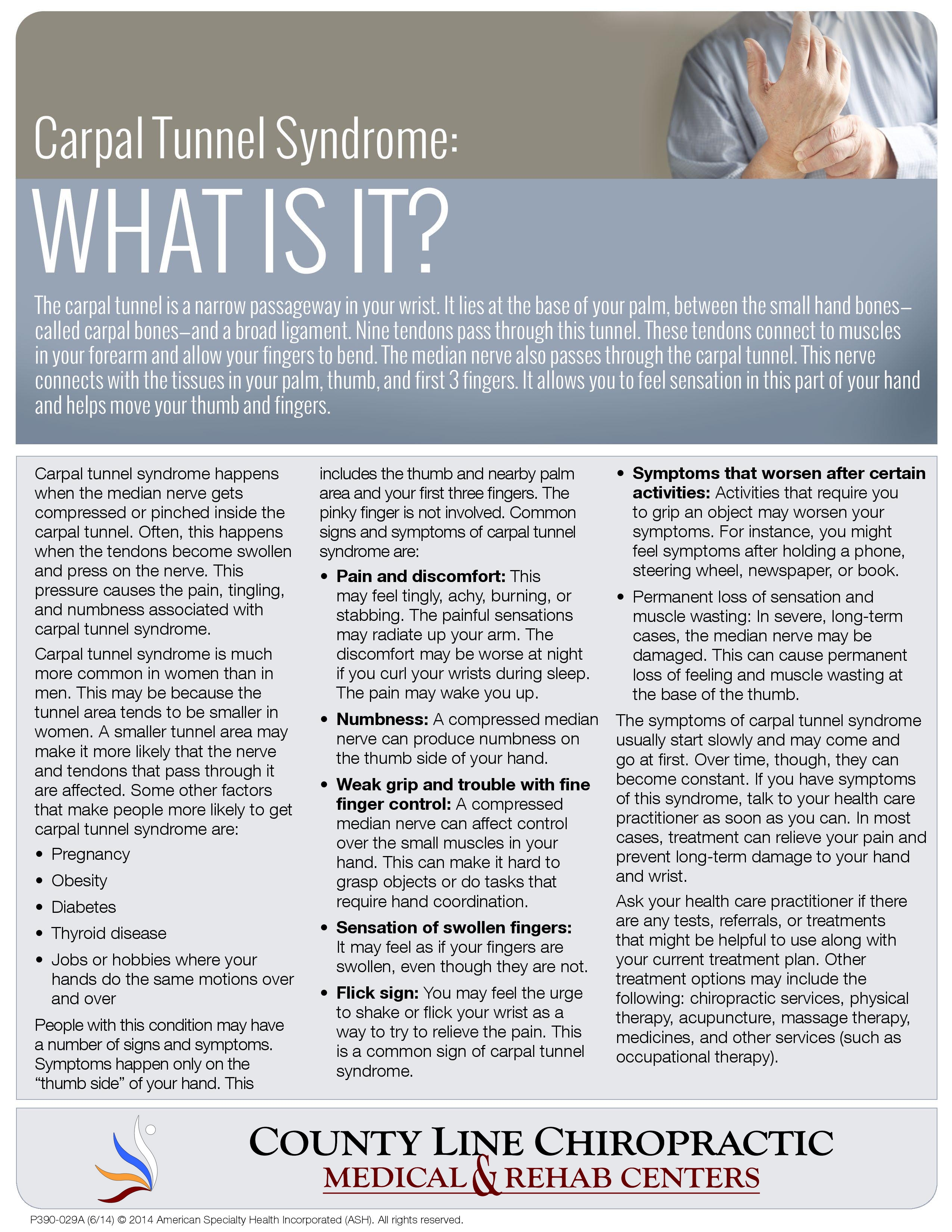
MARGARET, FL
“They explained to me everything about my accident and what they were going to do – point by point what was going on with my body, and said they would do everything they can for me to feel back to normal.”



Stress changes the way your body functions. It can increase heart rate, blood pressure, breathing rate, blood sugar, and muscle tension. These changes are a part of the body’s stress response.
The stress response developed to help our ancestors deal with physical threats. It is made up of 4 stages:
In today’s world, you may not have the same physical threats as our ancestors. But you may still experience the stress response when you perceive emotional and social stressors. Sometimes, you deal with so many of these stressors that your body is unable to return to a state of rest.
You can become “stuck” in the stress response and never fully relax. This is called chronic or long-term stress. Unlike acute stress, which is resolved quickly, chronic stress can last weeks, months, or even years.
Chronic stress is harmful to health. Here are some of the effects of chronic stress:
Chronic stress can also contribute to serious health problems such as:
Stress can also trigger some types of pain or make an existing condition worse. For example, migraine headaches are often triggered by stress. Depression, anxiety, anger, and muscle tension can be made worse by stress.
Determining your optimum stress level will help you manage stress. Your optimum stress level is when you have enough stress to feel challenged and engaged with life, but not so much that you feel exhausted and overwhelmed.
The optimum stress level differs from person to person. When you feel yourself becoming stressed beyond your optimum level, try some stress management skills to reduce your stress. Activities such as journaling, exercise, or relaxation and mental imagery skills can help you avoid the harmful effects of chronic stress.
Ask your health care practitioner if there are any tests, referrals, or treatments that might be helpful to use along with your current treatment plan. Call County Line Chiropractic today to schedule an appointment at one of our six chiropractic locations in South Florida! Click here to read more about chiropractic care for stress.

Fibromyalgia is a type of chronic pain. It is a health condition in which a person has long-term, body-wide pain and soreness in joints, muscles, tendons, and other soft tissue.

The carpal tunnel is a narrow passageway in your wrist. It lies at the base of your palm, between the small hand bones- called carpal bones- and a broad ligament.

Understanding Chronic Neck Pain Chronic neck pain is pain or discomfort in any part of the neck that lasts for 3 months or more. It can involve your muscles, nerves,

With five convenient South Florida locations to best serve you, there is nothing stopping you from making an appointment! Call today and start feeling better.
Helping patients for over 30 years
Full-service rehab centers
Non-Invasive alternative to surgery
We are committed to providing each and every patient with the highest quality, customized care they deserve. You can count on our chiropractors to help you live a happy, healthy, and pain-free life without any surgical procedures or harmful medications.
“They explained to me everything about my accident and what they were going to do – point by point what was going on with my body, and said they would do everything they can for me to feel back to normal.”
“I felt very comfortable attending therapy at this site ,the workers were very nice people,they treated you with the upmost respect from the time you walk in the building you’re greeted with a smile . I would refer all of my friends/family to this location if ever needed for therapy thank you all.”
“The best place to go. Fast recovery and best staff.”
“I’ve been treating here for many years and I refer my friends/family here after an injury for one stop, all-inclusive care”
“Many years ago i was helped. Many thanks county Line Chiropractor.”
“County Line Chiropractic is a great office. The staff is friendly, accommodating, courteous. The office is spotless, clean and spacious. The doctors are knowledgeable, caring and informative. I would recommend them anytime.”
“Doctors Amir and Pana and the whole team are AWESOME with every visit I feel welcome as I walk through the door and it’s always a pleasure attending every visit!!! Keep up the great work guys You all are doing a great job!”
If you’re ready to find the relief you’ve been longing for, you owe it to yourself to schedule an appointment at County Line Chiropractic today. We can’t wait to meet you and enlighten you on the power of chiropractic care and natural healing.